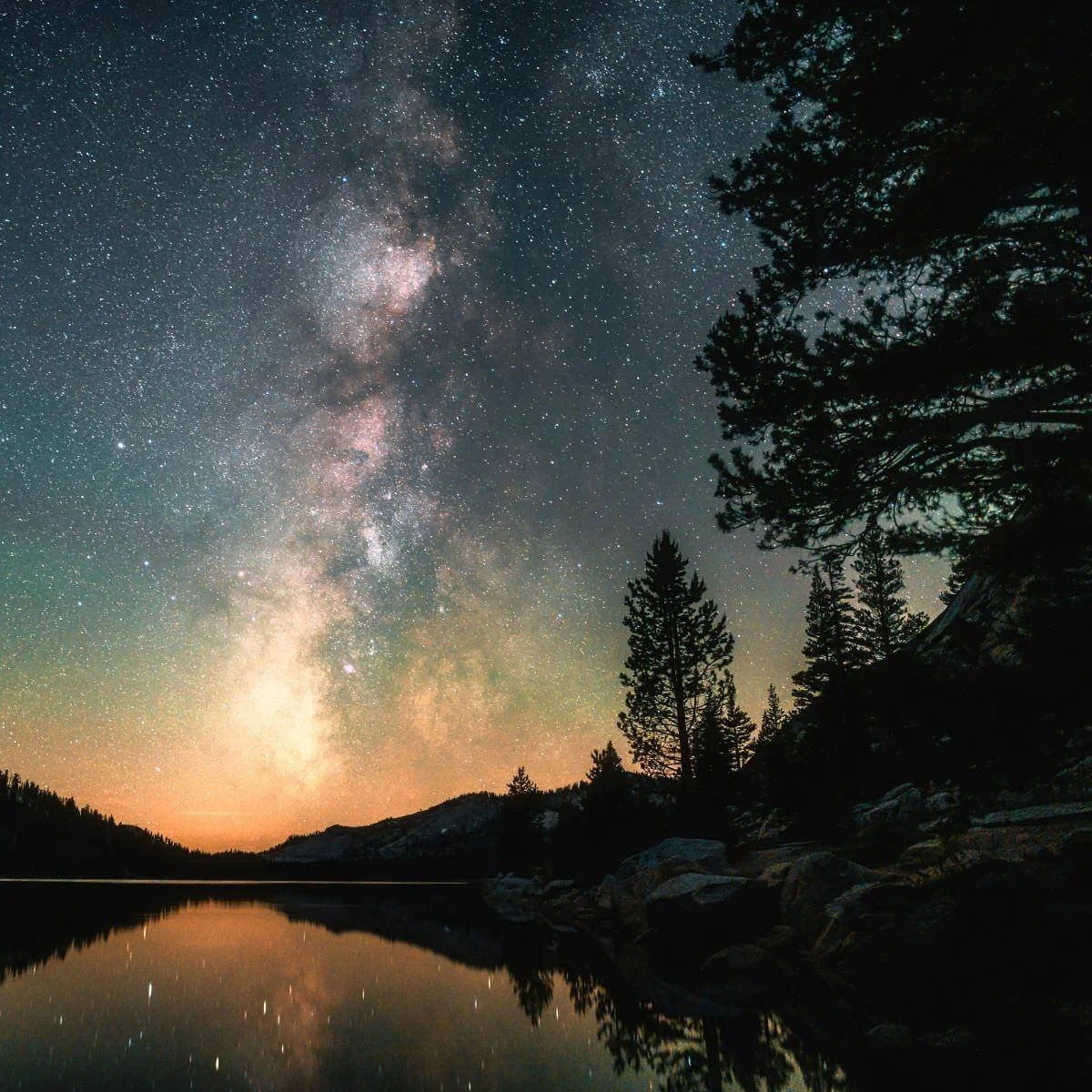Experiencing God through the Creation Psalms
Leslie Leyland Fields
4 min read ⭑
How often did the king, governing an entire nation, take time to contemplate the stars? I wonder if his officials raised their eyebrows every time he took off into the hillsides, the mulberry groves. Not only was the king responsible to lead and protect his nation from enemies inside and out—he was a pastor, too, a shepherd-king charged with guiding his people in love and obedience to Yahweh. Why then does he write songs about the hyrax, the mountain goats, and the stork? If we’re to walk with our God along the Psalm 1 path, surely then we’re to keep our eyes on God’s commands, on his commandments, on the psalms of wisdom, meditating day and night on his Word! Is that not what faithfulness requires?
Unsplash+
But David knew the scrolls weren’t enough. Because the God who spoke with us, who gave us the wealth of his Word, is also the God who gave us the wonder of his world. He comes near through his Word, and he comes close through his creation. If we don’t know and see this, we will miss so much of who he is and how he longs to be with us.
The creation psalms answer the early Israelites’ deepest questions—and ours as well. Who is this God we’re trying to follow? How powerful is he? What is he like?
The three psalms of the mini-Pentateuch retell Israel’s story, beginning with creation. No one witnessed the fireworks of God’s world-making words, but in Psalm 104, God himself lifts the veil on the mystery. He inspires the psalmist with breathtaking images of his creative acts: covering, stretching, laying, making, walking in the just-made world. Here’s the passage in Young’s Literal Translation, which gives us a fuller sense of the vibrancy of the verbs:
Bless, O my soul, Jehovah! Jehovah, my God,
Thou hast been very great, Honor and majesty
Thou hast put on.
Covering Himself [with] light as garment,
Stretching out the heavens as a curtain,
Who is laying the beam of His upper chambers in the waters,
Who is making thick clouds His chariot,
Who is walking on wings of wind,
Making His messengers—the winds,
His ministers—the flaming fire. (Psalm 104:1-4 YLT)
And we are here too, his very own creation. Look how he nourishes us:
Watering hills from His upper chambers,
From the fruit of Thy works is the earth satisfied.
Causing grass to spring up for cattle,
And herb for the service of man,
To bring forth bread from the earth,
And wine—it rejoiceth the heart of man,
To cause the face to shine from oil,
And bread—the heart of man it supporteth. (Psalm 104:13-15 YLT)
“So go outside. Walk the beach, watch the birds, wonder at the night’s chandeliers overhead. God is lighting those candles every night for us to find our way home.”
How far does God’s creative power reach? All the way from the universe to the uterus. In Psalm 139 we discover we are, each of us, God’s own design.
For You formed my inward parts;
You covered me in my mother’s womb.
I will praise You, for I am fearfully and wonderfully made;
Marvelous are Your works,
And that my soul knows very well.
My frame was not hidden from You,
When I was made in secret,
And skillfully wrought in the lowest parts of the earth. (Psalm 139:13-15 NKJV)
Again and again, the Psalms tell us, “The earth is full of his unfailing love.” (Psalm 33:5 NIV)
All this was news to the early Israelites. In Egypt, God’s people heard a different story: that they were disposable, useful only for their work; that the world was created and ruled by thousands of gods, not just one; that these gods were interested in fear and retribution, not love. Even as God was crafting the covenant between himself and his people whom he had rescued, they were creating a golden idol of the Egyptian bull god Apis. They wandered soon after in a desert of their own making, disbelieving who God said he was and who he said they were. Throughout their history, whenever they worshiped Yahweh’s creation but rejected Yahweh’s presence, they found themselves conquered, unmoored, or exiled to faraway lands.
Now, all these generations later, we are still unmoored, wandering, so often valuing ourselves and one another by our work. Wherever we work—in corporate buildings, in windowless warehouses, or even out on the ocean—our heads bend low. Our work week spills into the weekends. We’re trying to pay our bills. We’re trying to outrun inflation. We want good schools for our kids. We want our businesses to succeed. In this age of anxiety and insomnia, we miss the witness of the heavens. Our eyes are distracted, and we miss the glory of God. Like the Israelites in the desert, we forget who we are, whose we are. We can find no rest.
We need a rest stop, and here it’s given. The creation psalms slow us down. They open our eyes and ears, reminding us of our Creator and our createdness: He is our Father, and he fashioned each of us in our mothers’ wombs. We are beloved, given a place of honor among a creation where every inch and acre claps, shouts, sings, whispers, declares the care and the nearness of its Maker. No matter where we live— on an island, in the heart of a city, in a desert valley, in the southern suburbs—drawing near to God means beholding the light of God’s Word and of God’s world.
So go outside. Walk the beach, watch the birds, wonder at the night’s chandeliers overhead. God is lighting those candles every night for us to find our way home.
Leslie Leyland Fields is an international speaker, teacher, and the multi-award-winning author of fourteen books, including Your Story Matters, Forgiving Our Fathers and Mothers, Surviving the Island of Grace, and Crossing the Waters, which won Christianity Today’s Christian Living Book of the Year. She has taught extensively, including being a founding member of Seattle Pacific University’s MFA program. She lives on Kodiak Island, Alaska, during the winters; during the summers, she lives on Harvester Island, where she works with her family in commercial salmon fishing.
Adapted from Nearing a Far God by Leslie Leyland Fields. Copyright © 2024. Used by permission of NavPress.




